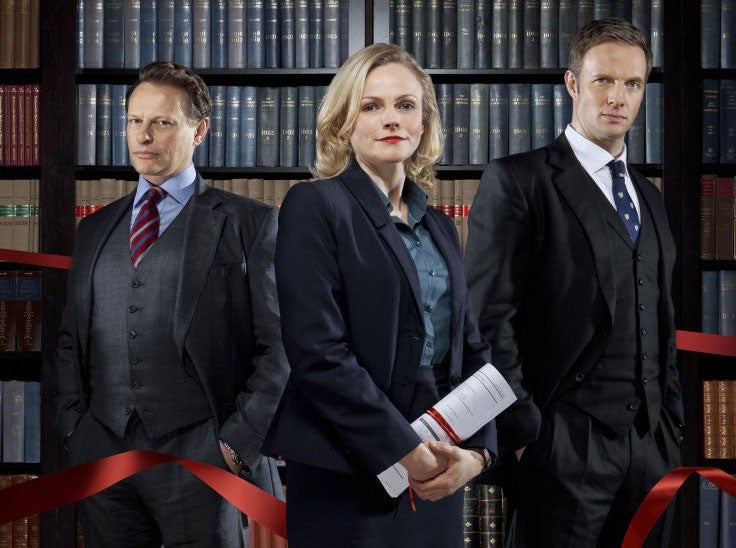Why Vince Cable must break the monopoly of law’s magic circle
Never has so much been charged by so few to so many


When I studied for my law degree many moons ago, and we came to looking for jobs, there were the firms who constituted the “magic circle” in the City and there were the rest.
The super-elite bunch then was Allen & Overy, Freshfields, Linklaters & Paines, Slaughter and May, Clifford-Turner and Coward Chance.
Since then, the latter two have merged to form Clifford Chance. And, er, that’s it. No other solicitors have broken into their hallowed ring; there’s been no relegation and promotion to and from this particular premiership.
Of course, there are other, “second tier” City firms, such as Herbert Smith, Lovells, Norton Rose, Cameron McKenna, Stephenson Harwood. None has managed to mount a sustained challenge to the five magicians, in terms of volume of work, profits per partner and scale of corporate and institutional clients.
New research shows that hourly fees at the fabulous five have hit a record £850 an hour for advice from some partners. Newly qualified lawyers are being charged out at up to £425 an hour – twice the rate in 2003.
It used to be the case that City lawyers cast envious eyes over the Atlantic to Wall Street. Not any more: in contrast to their London rivals, partners at the top American firms charge around £700 an hour.
Jim Diamond, the legal costs expert who compiled the statistics, said: “These figures are off the Richter scale and expose a shocking rise in fees over recent years.”
He added: “Whilst there is no official cartel with top magic circle firms, I can confirm in my survey over a decade that top rates range [within] about 5 per cent of each other.”
There is no evidence of a cartel, and to suggest otherwise would be to put Mr Diamond and The Independent out of business. The five, which are law firms after all, would come after us with their legal might.
Going back to my hazy memory of the law, much hinged in cases on the man on the Clapham omnibus and what he would have thought. He was held up as a decent sort of cove, reasonably educated, not prone to hyperbole. To decide if something was acceptable, we had to apply the reasonableness test and ask, what would this mythical figure do in such circumstances?
Now, I know the passengers on south London’s buses might have changed since Lord Justice Greer first alighted on them to define the standard of care a defendant must achieve in order not to be found negligent, as he did in the case of Hall v Brooklands Auto-Racing Club of 1933. But even so, assuming they’re not all senior partners of magic circle law firms – and it’s hard to conceive of the £850-an-hour brigade ever using buses – would the man on the Clapham service believe it OK to charge such an amount, and what would be his view of an industry in which the same five firms dominate as they did 30-odd years ago?
It’s no use blaming the five. They will maintain, until their claret faces turn blue, that there is no collusion between them; that competition is, in fact, very fierce.
And there’s little point berating them for raising the bar on solicitors’ fees, or indeed for trying to be successful. The clients who flock to them, and are prepared to pay so much for their expertise, are responsible. They include the Government and public sector organisations, which have long been major users of the charmed quintuplets.
While the five definitely do not operate in concert, a collective, subliminal view is encouraged to take root. Clients believe that by not going to one of the five they are somehow missing out, that they are not getting the best available advice.
It’s also a defensive ploy. They are paying for the brand, playing safe by going to one of the magic circle rather than choosing an untried, lower-division firm.
When the financial crisis hit in 2008 and we entered this prolonged age of austerity, the expectation was that the five would release their hold, that other firms would join them. That has not happened; if anything their grip is even stronger. Why? Because in tough times, conservatism has kicked in, and in-house counsel who commission the outside lawyers have sought security in selecting a magic circle member.
Until enough clients are prepared to take their business elsewhere the magic circle will remain. It will never be properly tested. For that to happen, they have to believe that most expensive does not necessarily mean the highest possible quality, where paying for legal assistance is concerned. Perhaps the Government should set an example and choose other firms.
It will take a sea change in attitudes. Those commissioning the lawyers and meeting their charges would need to think twice and to question what, exactly, they were getting for their money – something that does not occur frequently enough at present.
Law is not the only sector where a few have stolen a march on the many. Accountancy remains firmly in the grip of the Big Four – PricewaterhouseCoopers, Deloitte, Ernst & Young and KPMG. Likewise, in investment banking, whenever a large piece of business is up for grabs, in all probability one of the “bulge bracket” banks – Goldman Sachs, UBS, Deutsche, Credit Suisse, JP Morgan, Barclays, Morgan Stanley, Bank of America Merrill Lynch and Citigroup – will win it.
In 2010, the new Business Secretary, Vince Cable, told the Liberal Democrat conference: “Capitalism takes no prisoners and kills competition where it can, as Adam Smith explained over 200 years ago. I want to protect consumers and keep prices down and provide a level playing field for small business, so we must be vigilant right across the economy – whether in the old industries of economic textbooks or the newer privatised utilities and cosy magic circles in auditing, law or investment banking. Competition is central to my pro-market, pro-business, agenda.”
Fine words, Vince, but you’ve done precious little about it. As Jim Diamond’s findings suggest, it really is time that you did.
Join our commenting forum
Join thought-provoking conversations, follow other Independent readers and see their replies
Comments
Bookmark popover
Removed from bookmarks